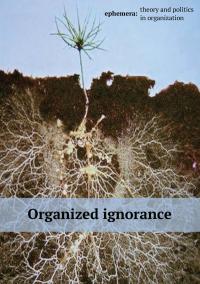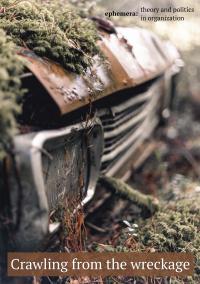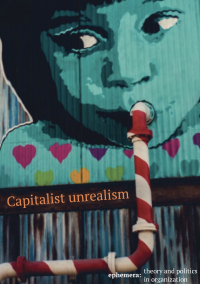review
This means war
Maurizio Lazzarato’s polemical essay Capital hates everyone: Fascism or revolution is the latest in a series of prescient engagements by the militant theorist best known for his early work on post-Fordist production and immaterial labor.
Worshipping work in Silicon Valley
‘[S]ubtly but unmistakably, work is replacing religion’ [4]. This is the assertion at the heart of Carolyn Chen’s new book Work pray code. The book’s choice of setting is striking: The heart of the American tech industry in Silicon Valley, California.
Taylor’s legacy: Sweat and exploitation in the digital factory
Taylor’s legacy: Sweat and exploitation in the digital factory
Meet Flippy, the burger grilling robot working in a fast-food chain. Flippy inspects the meat patty with image and thermal sensors, decides when it is done, and turns it with a spatula. The spectacle of automation draws customers’ attention, yet the robot relies on human assistance.
Against Black community? Organizing solidarity through the archive
In the embers of May 1968, French post-structuralists such as Maurice Blanchot (1988) and Jean-Luc Nancy (1986) made the argument that ‘community’ was no longer a tenable concept, nor a desirable political end. Per this line of thought, the ‘communism’ that would close off and essentialize what constituted community had to be fundamentally rethought.
Specters of specters of Marx: A ghost that was named Derrida
A ghostly encounter
What is that voice? Whose voice? And to whom is it addressed? A voice almost sepulchral. A ghost, an encounter. How are we surrounded by voices and ghosts like that? What can we learn from them? Let us go through this encounter with a ghost named Derrida.
Towards a critical theory of the corporate form
In recent years, critical research on the corporation has sprouted in a number of different disciplines, wherein the corporation (or critical research on the corporation) has not earlier been a focal point or a specific point of interest: History (Stern, 2011); intellectual history (Jessen, 2012; 2020); corporate law (Ireland, 1999; 2010); management and organization studies (Veldman, 2013; Veldman and Willmott, 2013); geography (Barkan, 2013); political science (Ciepley, 2013); as well as an issue on corporate governance here in ephemera (Jansson, Larsson-Olaison
A most wonderful mess
Introduction
Like so many other households, mine is doing its best to maintain some sort of order under the current conditions, organizing around the new abnormal of the COVID-19 pandemic as best we can. However, as we enter yet another month of semi-lockdown (this was written in a Copenhagen flat at the end of January 2021) entropy looms large. Routines that used to go unquestioned can now become the main task – and sometimes the highlight – of the day: do I need to shower? Should we prepare a home-cooked dinner?
Dis/organizing fascism
In December 2019 the internet giant Amazon got into a spot of bother when it was found to be selling T-shirts depicting a body plummeting from a helicopter beneath the caption, Wanna take a ride? (Goñi, 2019). The reference here was to the ‘death flights’ of Pinochet’s military dictatorship, which involved throwing left wing opponents of the regime from helicopters in lakes or the sea in an attempt to hide their murders.
Questioning the writing we do
You should be writing, as the joke goes. When we come across this joke, our minds immediately jump to our texts, very much in the plural. Texts in progress, texts not materialized yet, texts in limbo, overdue texts, texts we wish we had time to nurture, texts we dread, texts we wish we had not committed on delivering during the summer. For some, this joke echoes vague or poignant feelings of guilt, arouses various anxieties, small and big, or simply makes them laugh in recognition. But for me, this joke is a lasso.
From biased robots to race as technology
Ranking search results, filtering spam e-mails, recommending movies and books, evaluating credit card fraud, diagnosing malignant cells in cancer research, selecting job applicants – more and more tasks are being carried out by new media technologies such as machine learning algorithms. Their logic does not only simplify our daily approach to large masses of information but also applies at a higher level in the observation and regulation of population flows.




